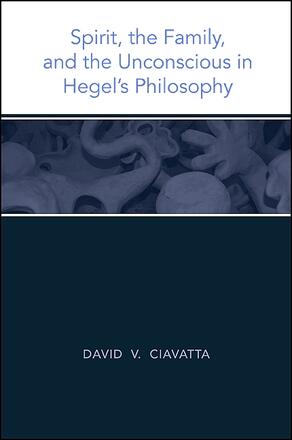
Spirit, the Family, and the Unconscious in Hegel's Philosophy
Alternative formats available from:
Investigates the role of family in Hegel’s phenomenology.
Description
Honorable Mention, 2011 Biennial Book Prize presented by the Canadian Philosophical Association
This original study of the role that family life plays in Hegel's Phenomenology of Spirit and Philosophy of Right pays particular attention to Hegel's characterization of the family as an unconscious form of ethical life rooted essentially in affectivity. David V. Ciavatta also looks at Hegel's account of feeling in the "Anthropology" section of The Philosophy of Spirit, highlighting the inherently porous nature of the self, and this porosity is shown to be constitutive of the distinctive, unconscious form of intersubjective recognition that forms the core of family bonds. The book provides a rich understanding of the role that family has in one's psychological development with respect not only to other people, but also to the world and one's own identity. Incorporating existential, phenomenological, and psychoanalytic perspectives, Ciavatta offers insightful investigations of many basic Hegelian themes, such as spirit, perception, ethical agency, language, and property ownership.
David V. Ciavatta is Assistant Professor of Philosophy at Ryerson University.
Reviews
"…Ciavatta's book makes a bold and interesting contribution to Hegel scholarship … his philosophical claims may well inspire some very fruitful polemics both inside and out of the community of Hegel scholars. " — Continental Philosophy Review
"…a valuable contribution to a vibrant conversation in current Hegel scholarship. Given the importance of the connection between recognition and institutions in the recent literature, Ciavatta's careful attention to the details of Hegel's accounts of the family in the Phenomenology and the Philosophy of Right does much to illumine how concrete institutions might actually contribute essentially to the accomplishment of a condition of mutual recognition. " — Notre Dame Philosophical Reviews
"Ciavatta has written an insightful, provocative book that draws connections between Hegel's work on family and feeling and later developments in contemporary Continental thought. " — CHOICE